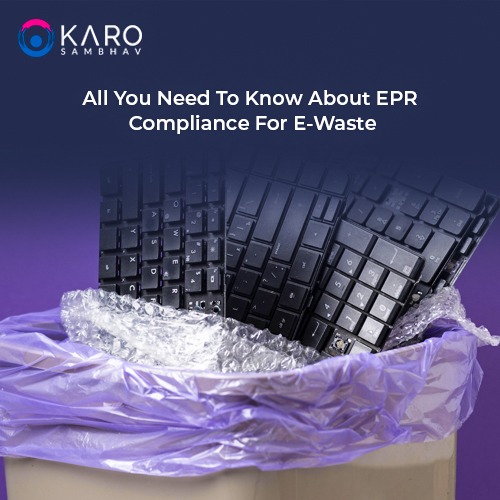Five Lesser Known Benefits of Recycling Lithium-Ion Batteries
The real-time use of lithium-ion batteries has spiked like never before. Are you aware of this? From appliances and medical equipment to electronic vehicles, marine motors, and more, lithium batteries are safe, reliable, efficient, and a rechargeable source of power. That explains why it crops up as an effective alternative to the previously used lead-acid batteries. Did you know that the batteries come with a steeper price tag too, and rightly so? Lithium-ion batteries are light-weight, portable, have a longer life span, and require little to no maintenance. The perks are obvious.
Unfortunately, a surge in the use of Li-ion batteries also implies a growing pile of battery waste. Although debates circling the responsible recycling of lithium batteries have been in motion for the longest time, only 5% of the batteries are efficiently repurposed across the world. India alone contributes over 50,000 tonnes to the surging battery waste stream. The stats are truly alarming. Karo Sambhav, a leading producer responsibility organisation in the country, envisions decoding circular economy practises to boost proper collection and battery recycling.
Why is it more than essential to recycle waste batteries?
Batteries, a present-day necessity powering an array of electronic appliances and vehicles, end up flooding the landfills. It is detrimental to the environment and hazardous to human health. Wondering how? Let’s read:
The batteries feature a combination of toxic chemicals, metals, and flammable electrolytes. Metals such as nickel, cobalt, and manganese are quite toxic in nature. Irresponsible disposal of batteries allows the toxins to leach out into the environment, contaminating the earth and water. Besides, not salvaging the flammable components in a battery sparks fire outbreaks in landfills. Did you know that starving out a fire caused by Li-ion batteries is difficult? The lithium salts in batteries are self-oxidizing. Hence, it reignites and flames up in no time. In short, complying with the right battery waste rules is crucial to ensure the safe disposal and recycling of flammable lithium-ion batteries.
1. Salvage non-renewable resources.
The growing use of batteries signifies optimum sourcing and use of raw materials. If you are not familiar already, elements that go into the making of lithium-ion batteries, such as cadmium, zinc, mercury, manganese, cobalt, etc., are mostly mined. Remember that despite being extracted from natural ores, the resources are only finite. Also remember that not all metals are renewable or available in abundance.
Proceeding with regulated and responsible battery waste recycling puts a halt to the erratic sourcing and mining of raw materials, thereby conserving the resources at large.
2. Keep the toxic elements and chemicals at bay.
Have you heard of mercury poisoning? The metal is a lethal pollutant and leaches into the environment easily. It contaminates waterways and landfills and defiles the environment in worse ways. Lithium-ion batteries comprise harmful substances like mercury, cadmium, and lead. Mindless disposal of the batteries is a threat to environmental sustainability.
3. Reduce the likelihood of fire explosions.
Battery explosions are certainly not unheard of. In fact, battery-induced flares spread like wildfire and are hard to extinguish. Thoughtful batteries recycling helps minimise the risks of explosions and fire mishaps. It must be understood that batteries are power cells that should be treated with respect and not dumped away carelessly. Exposing the Li-ion batteries to higher temperatures and manhandling increases the risk of explosion.
4. Bring down the cost of new batteries.
The need for newer Li-ion batteries will not be exhausted soon. A circular economy ensures maximum conservation of resources that can be directly used for forward manufacturing. This, in turn, works wonders in stepping down the costs of production. It also increases the chances of competitive pricing of batteries in the future.
5. Batteries are incredibly easy to reprocess and use.
A circular economy is commissioned to modify a battery’s end-of-life and encourage responsible battery recycling in India. Today, a growing number of collection centres are set up to facilitate workplaces, individuals, and major manufacturers to dispose of their drained and wasted batteries safely. So, stop discarding the batteries at the curbside and head over to your nearest collection point. Recycling the powerful Li-ion cells is easy.
Karo Sambhav is dedicated to ensuring the country’s remarkable transition to clean energy systems. The organisation follows an EPR framework to guarantee appropriate treatment and safe disposal of battery waste. It aims at curbing waste to an absolute minimum and focusing more on reusing and refurbishing the elements in batteries, keeping resources and products in a closed loop.
Source : https://www.karosambhav.com/blogs/five-lesser-known-benefits-of-recycling-lithium-ion-batteries


Comments
Post a Comment